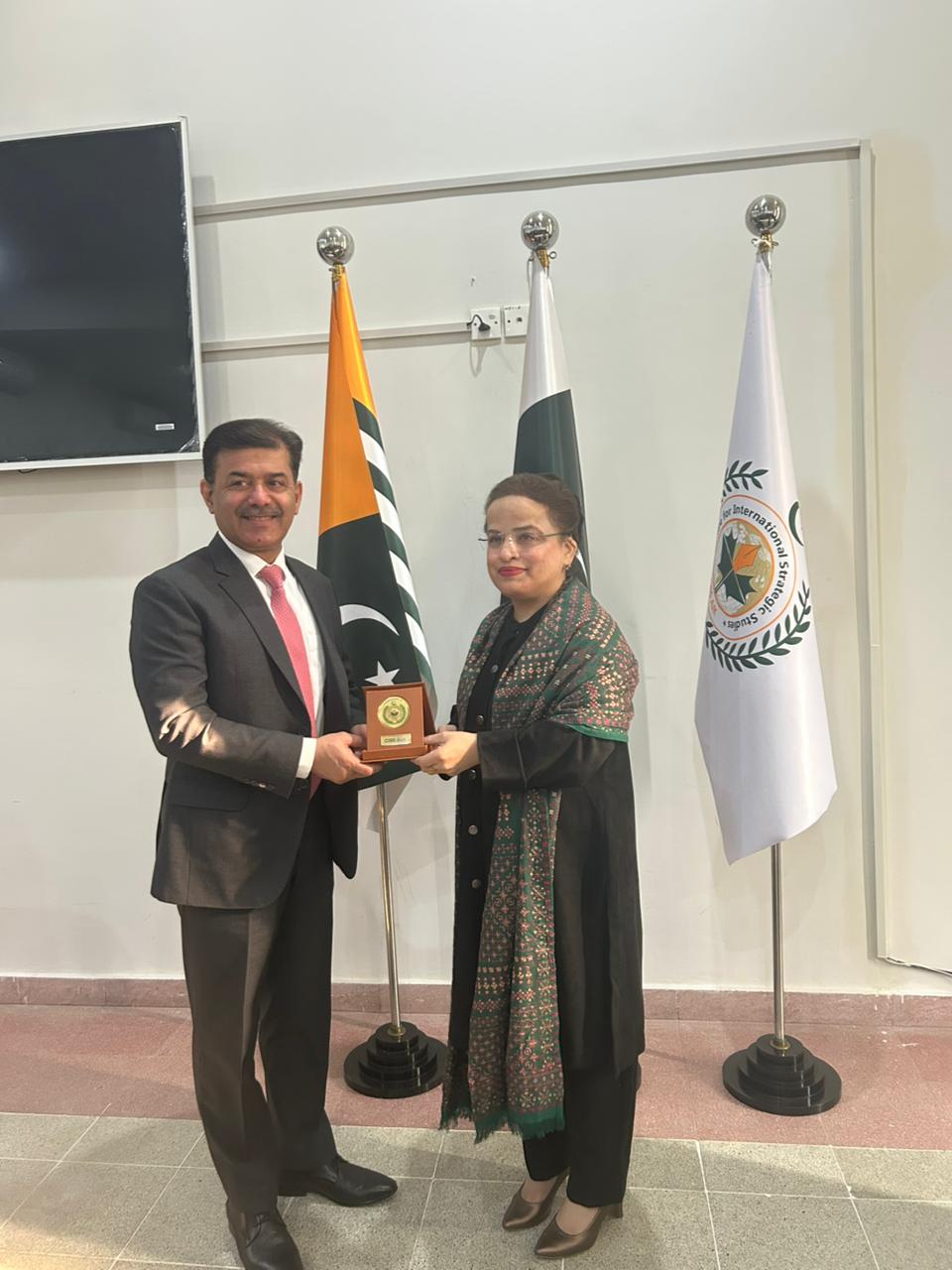
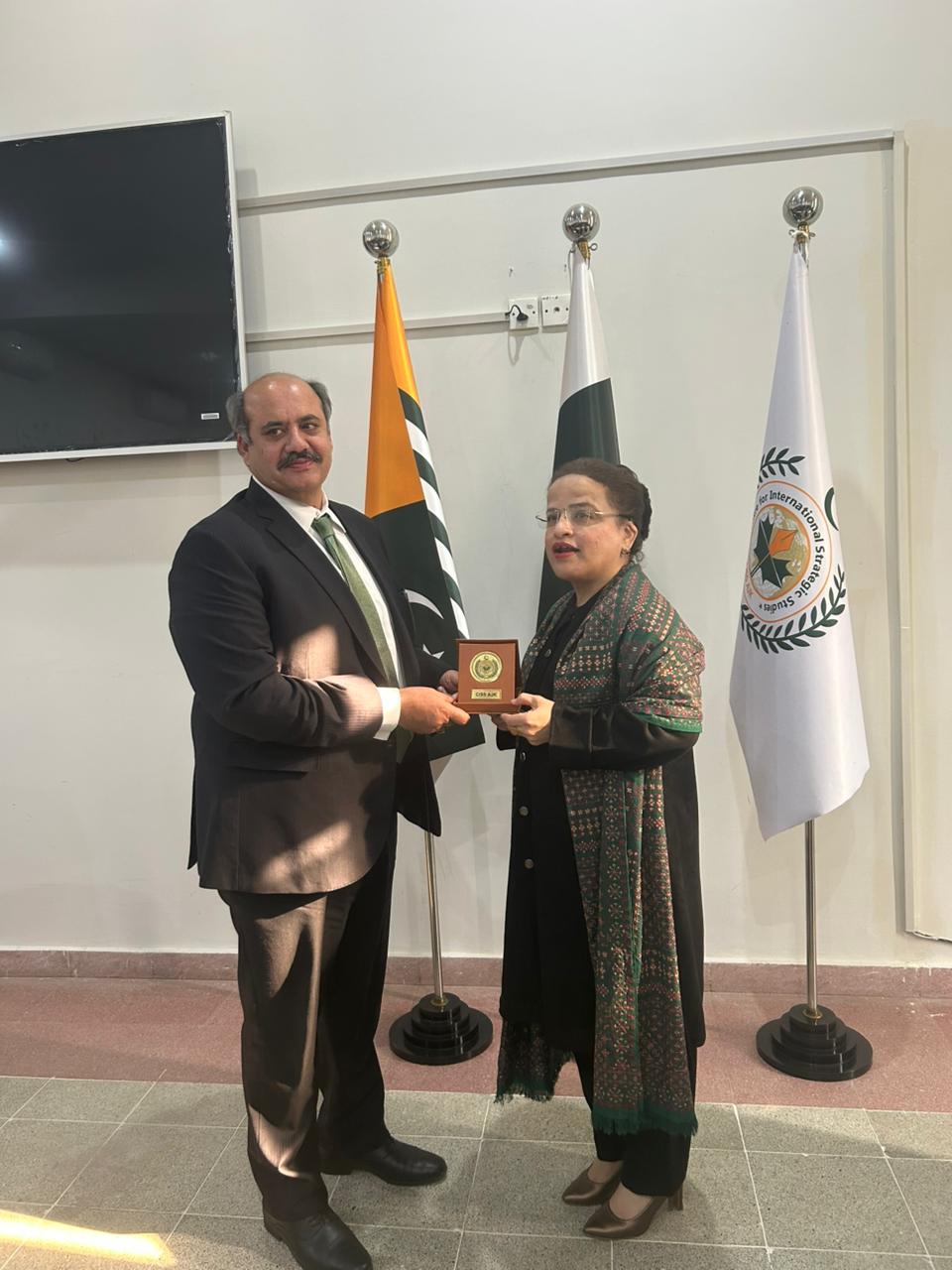
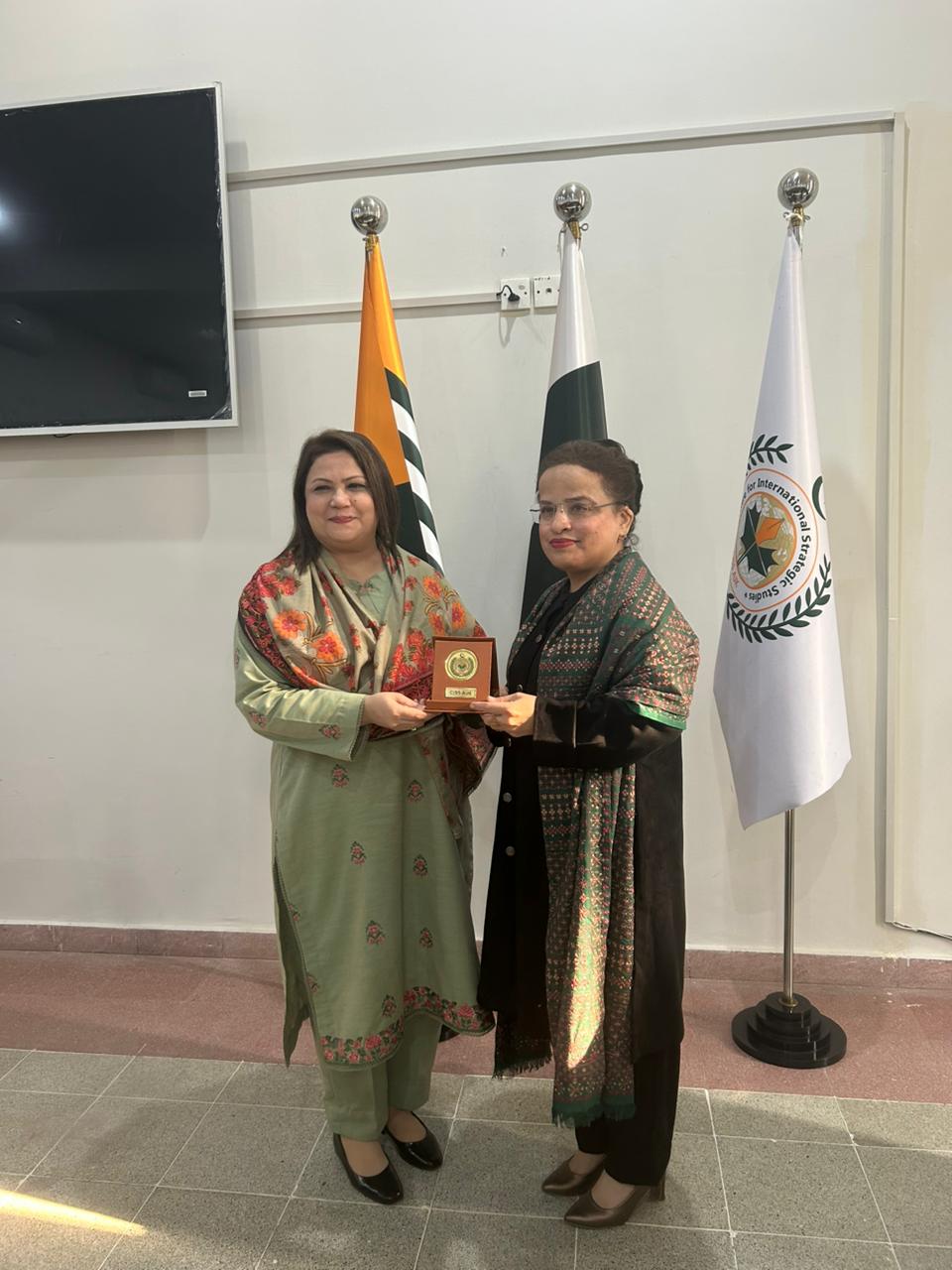
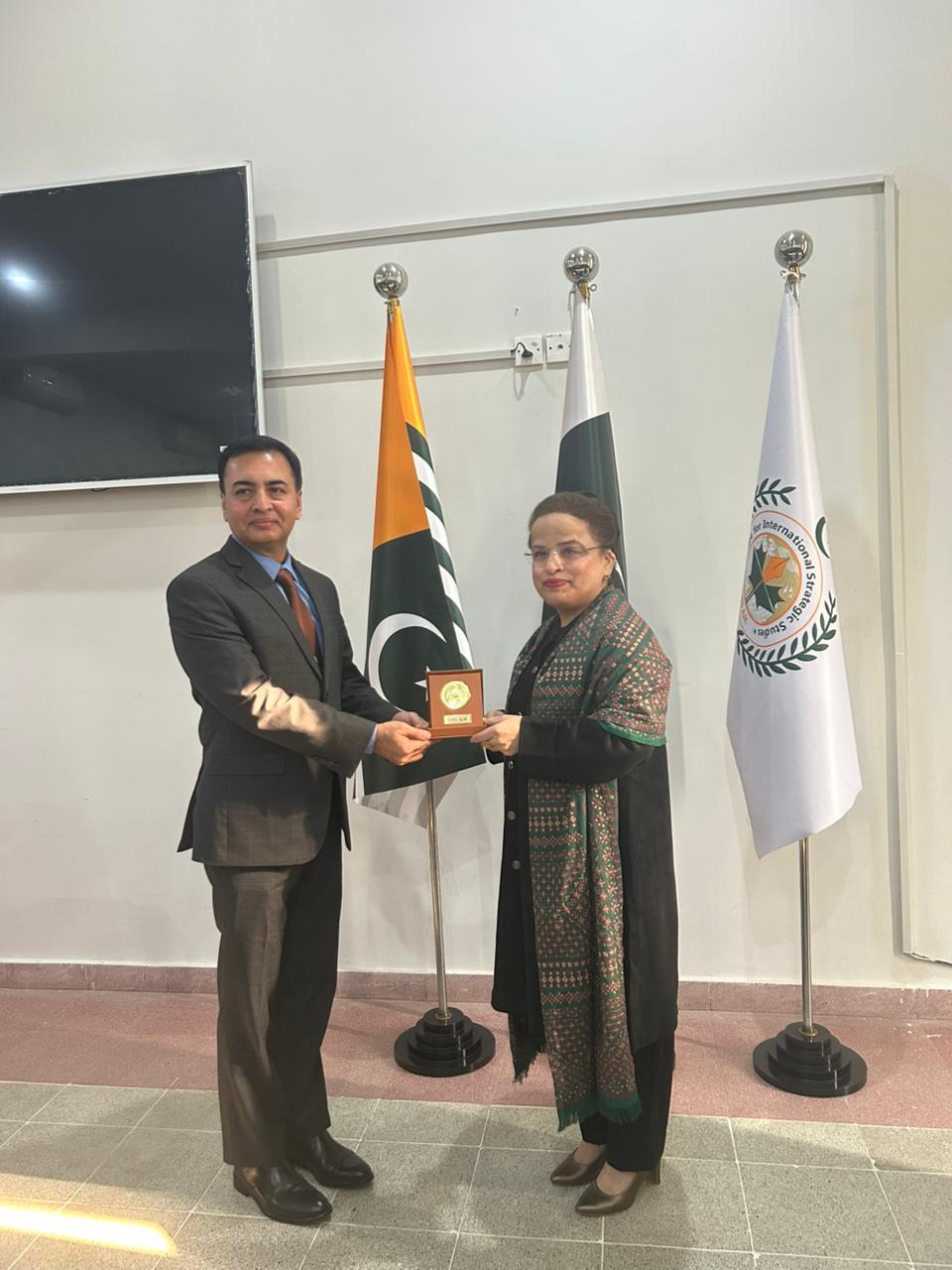
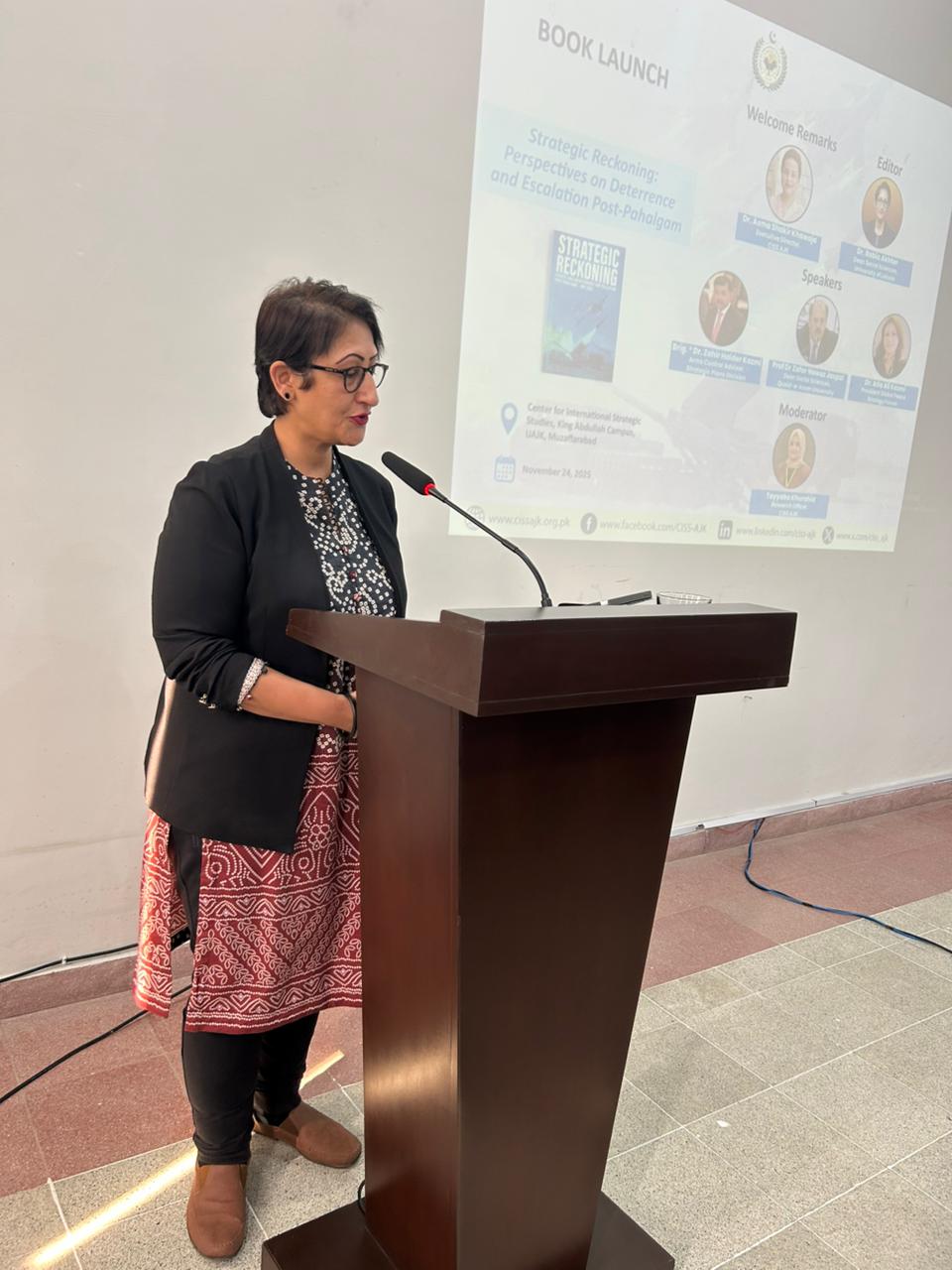
CISS AJK successfully hosted the launch ceremony of its latest scholarly contribution, Strategic Reckoning, bringing together renowned contributing authors, senior scholars, and strategic thinkers to unpack the shifting dynamics of deterrence and escalation in South Asia.
✨ Moderated by Tayyaba Khurshid, Research Officer CISS AJK, the event offered a timely and critical discourse on India–Pakistan strategic stability, emerging technologies, and evolving regional narratives.
🔹 Dr . Asma Khawaja, Executive Director CISS AJK , opened the session describing South Asia’s environment as one of “tri-compression”—space, time, and domains. She noted that cyber and electronic warfare are reshaping strategic calculations, while regional stability remains fragile under emerging technologies.
🔹 Dr. Brig (R) Zahir Haider Kazmi, Arms Control Advisor SPD, termed the book “a befitting rebuttal to Indian assertions.” He highlighted how nuclear deterrence continues to maintain stability, even as compellence strategies and cyber vulnerabilities raise escalation risks.
🔹 Prof. Dr. Zafar Nawaz Jaspal , Dean, QAU, underlined the tangible and intangible dimensions of warfare and warned that Pakistan lags in driving the academic narrative. He critiqued Western biases in strategic literature that downplay Indian capabilities while exaggerating Pakistan’s.
🔹 Dr. Atia Ali Kazmi, President, GPS Forum, discussed Pakistan’s shift toward an indigenous, integrated deterrence model—nuclear, conventional, and grey-zone. Citing Operation Bunyan-ul-Marsous, she emphasized Pakistan’s precision, restraint, and credible cross-domain response options.
🔹 Dr. Rabia Akhter , Editor of the volume and Dean, UoL, stressed that India’s strategy in Jammu & Kashmir represents ideological domination intertwined with military control. She cautioned that India seeks to normalize limited war under the nuclear umbrella and called Kashmir the “headquarters of a permanent crisis machine.”
♦️The ceremony concluded with a call for deeper academic engagement to counter biased global narratives and strengthen Pakistan’s intellectual presence in strategic scholarship. Souvenirs were presented to the distinguished speakers in appreciation of their contributions.
📗 Strategic Reckoning stands as a vital, timely addition to the strategic studies discourse—offering analytical clarity at a critical moment for South Asian security.



